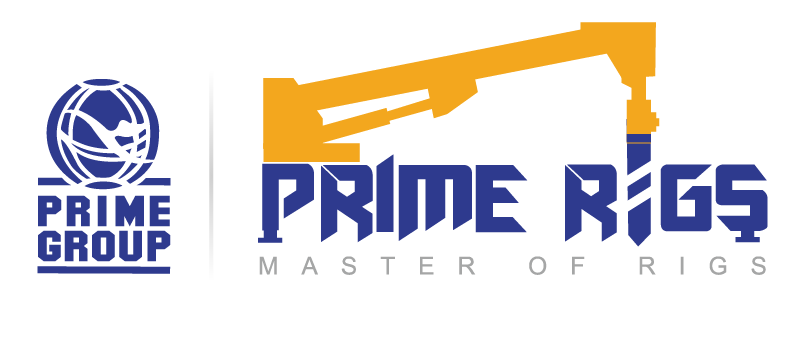
In India, where the problem of water shortage persists, borewells can be a critical solution for individuals, businesses, and farms. Nonetheless, in India, due to soils that are dramatically diverse (clayey soils in Bengal to rocky terrains in Rajasthan), selecting the right borewell machine may be daunting. The equipment used in your water drilling operation depends on the type of ground you have, and selecting the correct one is the key to success. This detailed article shall list five critical considerations that should be put into consideration when deciding to make this momentous financial choice of borewell rig machine.
Understanding Your Local Soil Composition
It is imperative that you perform a comprehensive soil investigation of the planned drilling location before purchasing any drilling equipment. A significant diversity exists between immature soils at each location; some are composed of soft sedimentary materials, while others are formed from hard rock formations. The drilling of clay-rich soils does not follow the same method as drilling in rocky or sandy soil. Professional soil tests will assist in ascertaining the geological setups, water table depth, and the levels of hardness you may find during drilling.
Selecting the Appropriate Drilling Depth Capacity
Various borewell machines vary in allowable depth of excavation, depending on type and specification, but a typical borewell machine may be able to go down to 100 feet or deeper (1000 feet). Where desert regions often necessitate tough equipment able to reach deeper aquifers, coastal regions with shallow water table levels might not. In estimating both current and future drilling capacity of your specific site and requirements, consider the seasons, future water consumption, and the profile of the local water table.
Matching Power Requirements with Soil Hardness
The hardness of your soil is probably one of the most significant factors in selecting your equipment, directly affecting the power requirement of the drilling equipment to be used. Hard rock formations such as granite require a heavy-duty borewell machine in India with high torque and drilling capability, and soft soils and sedimentary rocks need less powerful engines. Poor electricity results in slow development, damage to equipment and increased operating costs. Choose the equipment by using a power rating exceeding the resistance requirements of your soil to conduct efficient drilling.
Evaluating Equipment Mobility and Site Accessibility
Choose the trained equipment that is easily portable and placed in a favourable position to achieve the best drilling outcome, considering how accessible your drilling site is. Though the truck-mounted equipment is capable of transporting to a variety of site areas, it may face difficulties in cramped areas or in rough terrain. Trailer-mounted solutions are flexible, although they need different transporting vehicles. Track-mounted tractors have relatively poor mobility on roads, but outstanding off-road capabilities. Think through the features of your site, the transportation system, as well as the future mobility needs.
Balancing Budget Constraints with Long-term Value
The initial outlay is important, but you must look at the expected life of equipment, fuel usage, cost of maintenance etc. and availability of replacements. Inexpensive equipment often results in lower performance in drilling, more failures and operating costs over time. In deciding on your final selection, consider resale value, the warranty offered against the warranty coverage, financing options, and even support assistance, locally based. Purchase well-known equipment that is manufactured by well-known producers who have experience of success in the Indian market.
Conclusion
A number of elements unique to Indian soil characteristics and operating needs must be carefully considered while choosing the best borewell machine from Prime Rigs. You may make an informed choice that guarantees effective water drilling operations by carefully examining your soil composition, figuring out the right depth requirements, matching power specifications, assessing mobility demands, and balancing budgetary concerns.
Recent Post
- Frequent Used: Heavy Construction Equipment and Instruments
- What Type of Water Drilling Should You Choose?
- How To Choose The Perfect Drilling Rig To Buy?
- Tips For Selecting the Right Drilling Rig According to Your Need
- Water Well Drilling: Numerous Advantages
- How To Find Affordable And Reliable Water Well Drilling Rigs For Sale?
- Everything You Need to Know About Water Construction Rigs
- Water Drilling Rigs: Know The Different Types
- Refurbished Borehole Drilling Machine: Is It Worth The Purchase?
- Safety for the Construction Industry: Why Does it Matter?
- Milling Or Drilling: Which Is The Right Process To Choose?
- Choosing A Construction Truck Rigs Supplier Keeping Perfection In Mind
- Factors That Can Help You Select The Best Water Well Drilling Rig
- What Makes Drilling Rigs Different From Milling Rigs?
- Water Well Drilling Rig: All You Need to Know About It
- Do’s and Don’ts of Choosing the Right Rigs
- Underground Drilling Rigs: Features That Make Them Unique And Most Recommended
- What are construction drilling rigs? Why do companies need them?
- How do drilling companies help you with core drilling exploration?
- How to Compare Drill Machine Manufacturers Before Purchase
- Automation in Blast Hole Drilling Machines: The Future of Mining
- Cost vs Performance: Choosing the Best Mining Rig for Your Budget
- Essential Drilling Equipment Guide: Top Technologies and Uses
- Comparing Electric vs Diesel-Powered Mining Rigs: Pros and Cons





